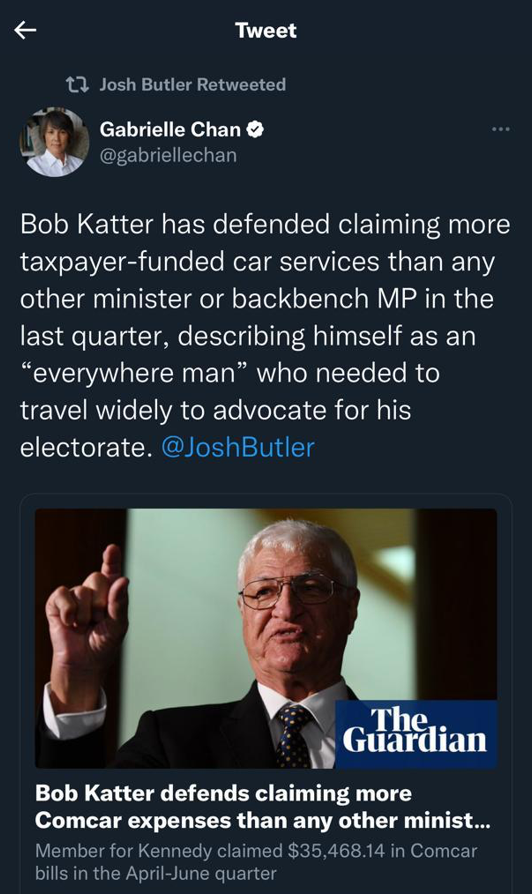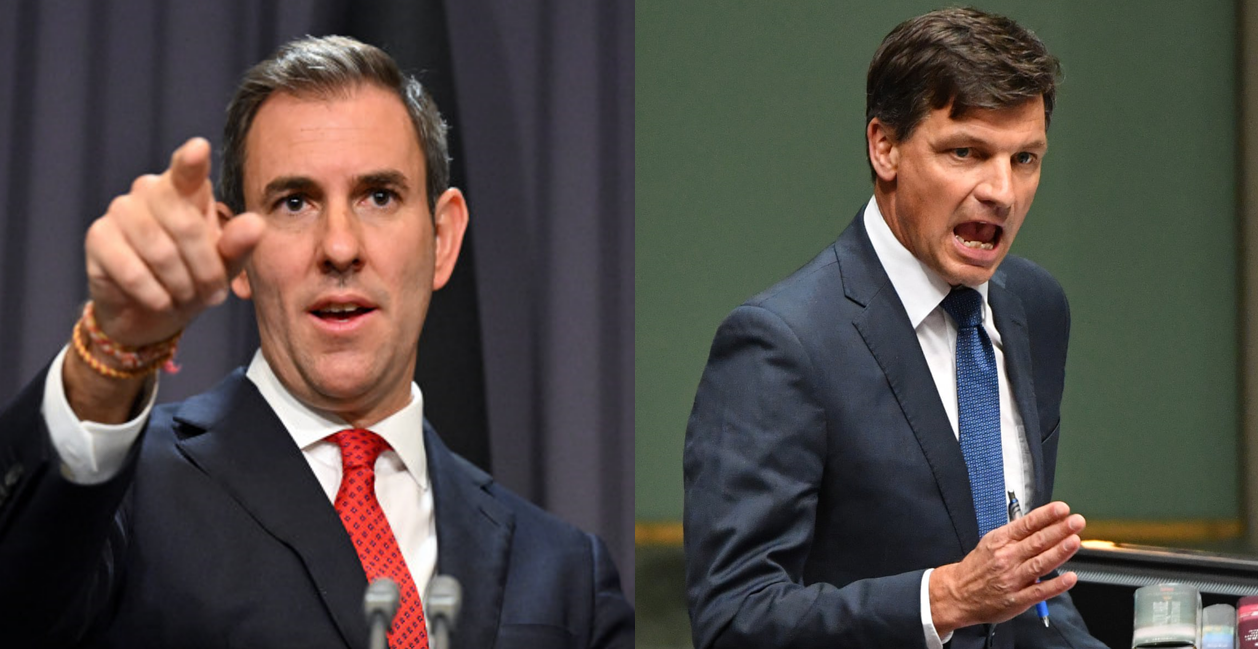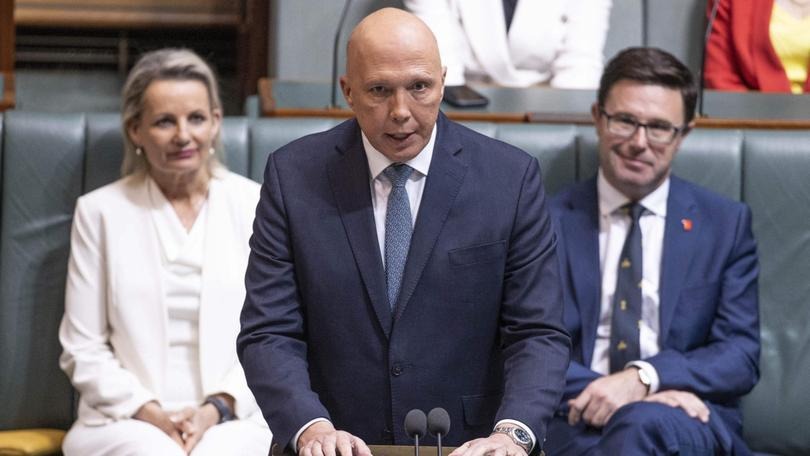Last week’s Budget was ‘responsible, but exactly right’ for what Australia needs in the current climate, according to the Prime Minister, the Hon Anthony Albanese MP.
With energy prices forecasted to continue rising, and a worrying global economic outlook, the Federal Government handed down its Budget in a challenging environment.
Treasurer, the Hon Jim Chalmers MP, has been in the media receiving both praise for his ‘economically sensible’ Budget, and criticism for doing too little to alleviate the cost of living, particularly as energy prices increase.
Opposition Leader, the Hon Peter Dutton MP, responded to the Albanese Government with a concerted effort to reframe the Coalition as a strong alternative Government.
Chalmers vs Taylor
Chalmers: Treasurer Chalmers is no stranger to federal budgets, having worked on 16 federal budgets as a staffer, adviser, shadow minister, and finally, last week, at the helm himself.
He warned naysayers that this Budget would be a no-frills ‘bread and butter’ exercise, and what was delivered last Tuesday was the foundation for the May 2023 Budget.
In the context of the Albanese Government, the cabinet promotes working as a collegiate team feeding into Prime Minister Albanese’s roundtable approach. The Prime Minister emphasised last Tuesday that this was ‘Jim Chalmers’ Budget’, with the Treasurer spreading the love amongst his colleagues, including Minister for Finance, Senator the Hon Katy Gallagher.
The public response to the Treasurer’s Budget was unsurprisingly mixed between praise for simplicity in approach, and criticism for failing to provide significant cost-of-living relief.
It is undoubtedly the case that Treasurer Chalmers and the Albanese Government face one of the most challenging economic situations in years. In his speech, the Treasurer warned Australians that the world now faces the ‘prospect of a third global downturn in a decade and a half’ as the world’s central banks lift interest rates at a regular pace to control inflation.
He told Australians that increased tax revenue from commodities will be put back into consolidated revenue to alleviate the interest payments on our national debt.
Taylor: While not delivering the Opposition’s Budget-in-Reply, Opposition Treasurer, the Hon Angus Taylor MP, spoke to the National Press Club on Wednesday, 9 November.
Mr Taylor focused his address on how the Budget did not adequately address the cost of living pressures faced by Australians doing it tough. He argued the Government did not address the root cause of inflation.
His theme was ‘the biggest broken promise is the one the Prime Minister made before the election – the promise that no one would be held back, and no one left behind.’
Mr Taylor emphasised that the Budget abandoned the goal of returning to surplus, without policies to grow productivity.
Peter Dutton’s Budget Reply
The Opposition Leader is afforded the opportunity to deliver the Budget in Reply speech in Parliament House.
The Hon Peter Dutton MP used his Budget in Reply speech to highlight the ongoing pressures for Australian families, the cost-of-living crisis, and the scrapping of infrastructure plans.
He also used the opportunity to discuss the Coalition’s economic record, support for housing relief, industrial relations, supporting women and children online safety, defence, and veterans.
However, despite this broad range of policy topics, the Coalition’s Budget Reply was less policy focused and more Dutton-focused. Now in Opposition for the first time in nine years, the Budget Reply was an opportunity for the Opposition Leader to rebrand himself as a leader.
Mr Dutton used his speech to recount his early life and formative experience in the Police Force, presenting his ‘values’ as the Opposition leader. While announcing no new policies, Mr Dutton and Mr Taylor said the Coalition would have a ‘clearly defined, positive and bold plan’ ahead of the next election.
When framing the Government’s first Budget, and the Oppositions Reply, the lessons learnt from Liz Truss’ 45 days as Prime Minister of the United Kingdom were fresh in everyone’s memory: far-reaching economic reform without proper consultation spells political trouble.
The 45 days of Liz Truss
In the lead-up to the Federal Budget, Treasurer Jim Chalmers was questioned about the current impact of the political turmoil hampering the United Kingdom.
‘It’s in everybody’s interests, not least of which the UK, is that there is a semblance of order and stability in the UK. It’s a sign of the times, frankly, in the UK, that I’ve only been the Treasurer here for five months, and I’ve already had four UK counterparts.’
Dr Chalmers also had some advice for his UK counterparts:
‘I don’t think it’s any secret when you get your monetary policy and your fiscal policy so substantially out of whack that the market judges you for it,’ Chalmers said. ‘The lesson for us is we do what’s right and responsible, solid, sensible, suited to the times because the stakes are relatively high at a time when the global economy is a pretty uncertain place.’
In a hectic month for politics worldwide, here is a snapshot of how Ms Truss went from Leader to the shortest-serving British Prime Minister.
The Beginnings
After a bruising internal election process in the wake of former Prime Minister Boris Johnson‘s resignation, Ms Truss emerged the victor with Conservative faithful.
Three days into her Prime Ministership, Ms Truss announced an energy support package, setting out plans to freeze energy bills at an average of £2,500 a year for two years – one of the most significant government interventions since the 2008 Financial Crisis.
The Prime Minister fended away questions about how her Government would cover the cost and why more affluent households across the UK would receive twice the support as the poorest. Later the same afternoon, Her Majesty Queen Elizabeth II passed away, and the ten days of mourning put a handbrake on any policy changes.
The Policy
Following this, Truss’ Chancellor, Kwasi Kwarteng, announced the most significant tax cuts in 50 years – worth £45bn – without the usual independent costing from the Office for Budget Responsibility.
Prime Minister Truss said it was a ‘fiscal event’ rather than a budgetary measure; therefore, the Office for Budget Responsibility did not need to be consulted.
It later emerged that Truss had not informed the Bank of England of the tax plans. The vast increases in government borrowing sent the sterling and British government bonds into freefall. The International Monetary Fund called for a ‘U-turn in policy’, and the Bank of England had to urgently buy up to £65bn of gilts to shield pension funds that were close to collapse.
Walking Back
The Prime Minister instructed Chancellor Kwarteng to return home early while on a diplomatic visit to Washington, DC. The Chancellor met with Prime Minister Truss who removed Kwarteng from the role, with long-term Conservative MP Jeremy Hunt taking on the Chancellorship.
However, this did not turn Truss’ political fortunes around, despite acknowledging that she had gone ‘further and faster’ than investors expected.
Chancellor Hunt still needed to find public spending cuts of about £40bn to balance the books, with the Bank of England warning UK borrowers that they would face higher interest rates due to Ms Truss’ decisions.
Just three days later, and one of the most significant U-turns in modern political history, Chancellor Hunt abandoned most of Kwarteng’s planned tax cuts – and made it clear there would be ‘eye-watering’ spending cuts in the next mini-budget.
Following this, Attorney-General for England and Wales and Advocate General for Northern Ireland Suella Braverman, published a bruising resignation letter after being forced to step down as Home Secretary.
In the evening, controversy surrounded the House of Commons, with Members of Parliament alleging that Ministers physically pulled Conservative MPs into the chamber during a vote on fracking.
The Resignation
Finally, with 15 Members of Parliament publicly calling for her resignation, Ms Truss delivered a difficult statement at 1.30 pm on Thursday announcing her intention to resign.
The Lessons
In a time of grim global economic outlook, the failure of Truss’ short prime ministership is a reminder to governments attempting to combat economic downturn via policy idealism, while leaving central banks and markets in the dark.
Ms Truss, and many other political leaders over the last decade, have channelled their political heroes such as Thatcher, Reagan, Kennedy, and Keating. But many have paid the price for sticking closely to the political idealism of their chosen hero without building the foundation of a policy framework suited to the current times.
Ms Truss appealed to Thatcherite policies to secure the base of the British Conservative Party members during the leadership contest, much to the displeasure to the now British Prime Minister, Rishi Sunak (who correctly predicted the impact on both UK domestic and global markets of such policies).
This is not to say that a principled approach to leadership and political decision-making is an inherent negative. A leader can’t be a leaf in the wind. Guiding political principles to inform decision-making is critical to political leadership. But it must be suited to the times, with the public brought along.
Tweet of the Week:

Latest posts by Nexus APAC (see all)
- United Kingdom General Election 2024: An Overview - April 15, 2024
- Australian Voters Go to the Polls - February 26, 2024
- Secretaries of Federal Departments – An Overview - February 1, 2024



